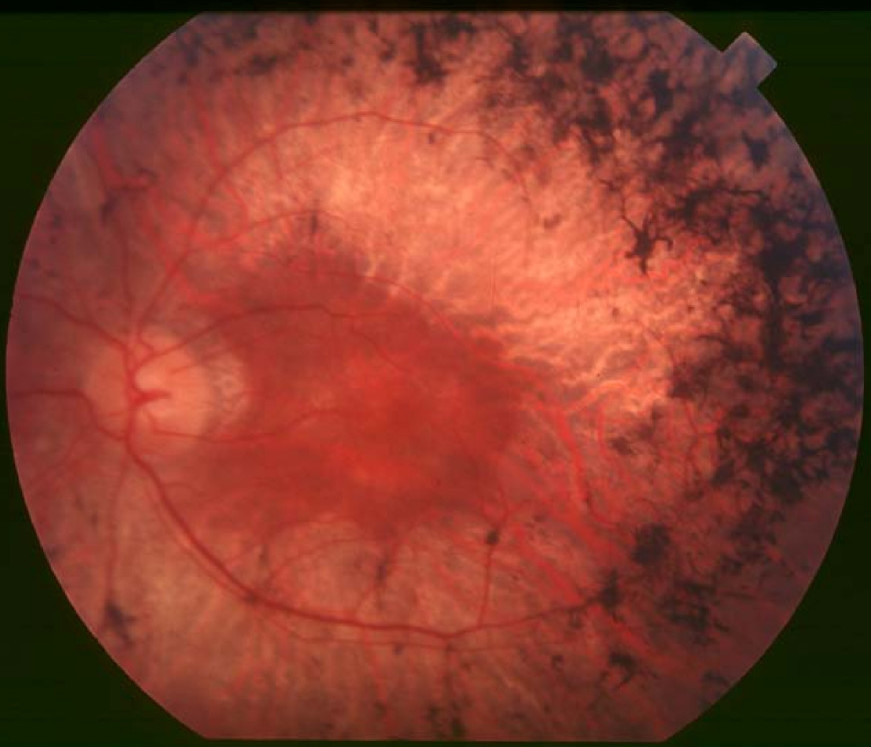Retinitis Pigmentosa 39

A number sign (#) is used with this entry because retinitis pigmentosa-39 (RP39) is caused by homozygous or compound heterozygous mutation in the USH2A gene (608400) on chromosome 1q41. Mutations in the same gene cause Usher syndrome type IIA (276901).
For a general phenotypic description and a discussion of genetic heterogeneity of retinitis pigmentosa (RP), see 268000.
Clinical FeaturesRivolta et al. (2002) described a patient with isolated RP who had complete paternal heterodisomy for chromosome 1. Clinical findings were typical, including fundi with attenuated retinal vessels and intraretinal bone spicule pigment around the periphery. Electroretinograms (ERGs) were reduced but detectable at the age of 54 years. This patient had been part of the study of Rivolta et al. (2000).
Kaiserman et al. (2007) studied a large Iraqi Jewish family with a complex pattern of inheritance in which some family members suffered from Usher syndrome type 2 while others had nonsyndromic RP. At the age of 66 years, the mother in the nuclear family had advanced RP with nonrecordable ERG responses and severely constricted visual fields. Her 3 daughters with RP (aged 32 to 39 years) had somewhat less severe retinal disease, but all were legally blind.
Molecular GeneticsThe patient described by Rivolta et al. (2000) and Rivolta et al. (2002) with RP and homozygosity for a cys759-to-phe mutation in the USH2A gene (608400.0006) was determined to be completely paternally heterodisomic for chromosome 1 with isodisomic segments at the distal ends of the long and short arms.
In the large Iraqi Jewish family studied by Kaiserman et al. (2007), 3 different mutations in the USH2A gene caused 2 phenotypes. Two of the mutations were null (2139insCGAT, 608400.0010 and R737X, 608400.0011) and were found in affected individuals with either Usher syndrome or RP; a novel missense mutation (R4674G; 608400.0012) was specific to the RP phenotype.
McGee et al. (2010) screened the long isoform of USH2A in 80 patients with nonsyndromic autosomal recessive RP and identified at least 1 deleterious mutation in 19% of cases. The authors stated that their findings supported USH2A as the most common known cause of RP in the United States.